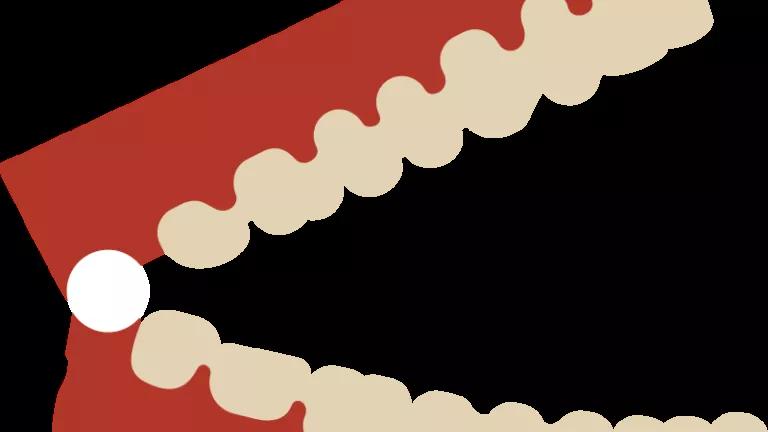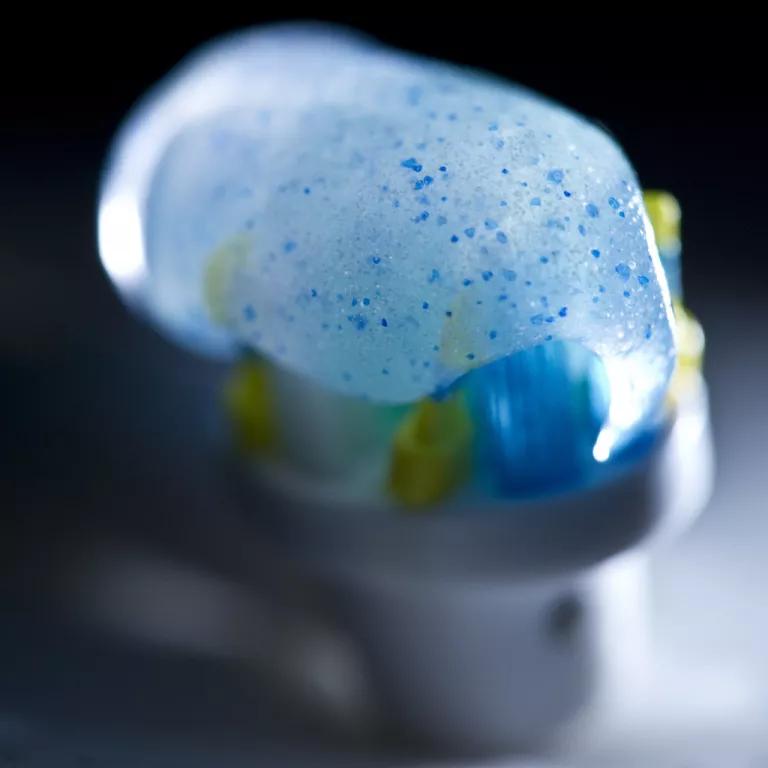What's a Sulcus?
You've got plastic microbeads in your sulcus. (And that's not a good thing.)

Sulcus (n.): a narrow fissure in the body, such as the space between the teeth and gums.
Crest recently pledged to remove plastic microbeads from its toothpaste by March 2016. Although the company insists that the beads are “completely safe,” there is evidence that they can get stuck in your oral sulcus and possibly cause problems. Wait. What the heck is a sulcus?
Generally speaking, a sulcus is any crevice found in the body. There are sulci in your brain, heart, and bones. In this case, I refer to a slight curve at the point where your gums meet your teeth, which creates a wedge of space called the gingival sulcus. The space can vary depending on the shape of your gums and teeth. At your last dental appointment, the hygienist may have pried into your sulci with one of those medieval metal hooks they like so much while calling out numbers to an assistant. This unpleasant process is an attempt to measure your sulcus depth. Anything more than three or four millimeters is an indicator of disease, but a sulcus between one and three millimeters deep is perfectly normal. Not much can get stuck in such a small space.
Except microbeads.
These itty-bitty bits of high-density polyethylene—which are included in exfoliating scrubs, toothpaste, and other personal care products—have been in the news a lot lately because of their ability to bypass water-filtration plants and pop up in waterways. In a study published last year, researchers found 1.1 million particles of microplastic per square mile in the Great Lakes. Many of those came in the form of microbeads, which can help transport harmful chemicals into the guts of fish. The finding so alarmed policymakers that city and state governments in the United States have been moving to ban microbeads ever since.
Now they’re showing up in human mouths. The typical microbead is nearly indestructible and less than one millimeter across, making it adept at becoming lodged in a gingival sulcus of ordinary size. Earlier this year, dental hygienist Trisha Walraven blogged about her experience finding microbeads “stuck in [her] patients’ mouths almost every day.” She compared the phenomenon to an experience most people can relate to—getting popcorn hulls stuck in your gingival sulcus. Walraven’s blog post went viral and almost certainly contributed to Crest’s pledge to stop using the beads.

The worry is that the beads might trap bacteria in the sulcus and cause conditions such as gingivitis, but the jury is still out on whether having a gingival sulcus full of microbeads really affects dental health. It’s possible that they just sit in there harmlessly forever—or until a hygienist pries them out—without contributing significantly to periodontal disease. The American Dental Association released a statement in September noting that “at this time, clinically relevant dental health studies do not indicate that the [ADA seal of approval] should be removed from toothpastes that contain polyethylene microbeads.”
Crest isn’t taking any chances. We know microplastic is terrible for ecosystems, but now that one of the world’s biggest toothpaste makers is getting out of the microbead business, we may never know for certain whether it’s safe to stuff tiny bits of plastic between our teeth and gums. What a loss for science.
This article was originally published on onEarth, which is no longer in publication. onEarth was founded in 1979 as the Amicus Journal, an independent magazine of thought and opinion on the environment. All opinions expressed are those of the authors and do not necessarily reflect the policies or positions of NRDC. This article is available for online republication by news media outlets or nonprofits under these conditions: The writer(s) must be credited with a byline; you must note prominently that the article was originally published by NRDC.org and link to the original; the article cannot be edited (beyond simple things such grammar); you can’t resell the article in any form or grant republishing rights to other outlets; you can’t republish our material wholesale or automatically—you need to select articles individually; you can’t republish the photos or graphics on our site without specific permission; you should drop us a note to let us know when you’ve used one of our articles.
1.5 Degrees of Global Warming—Are We There Yet?
When Customers and Investors Demand Corporate Sustainability
The Smart Seafood and Sustainable Fish Buying Guide